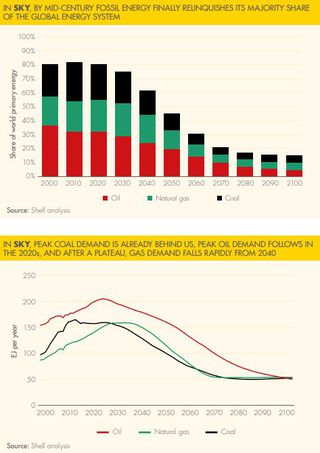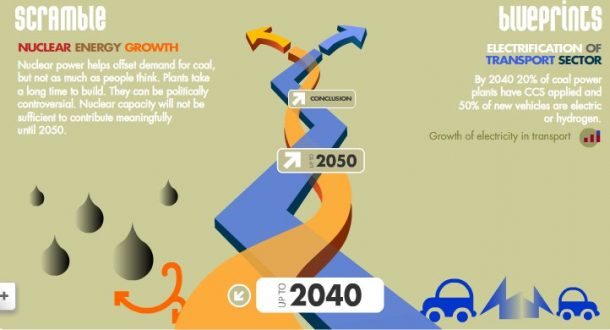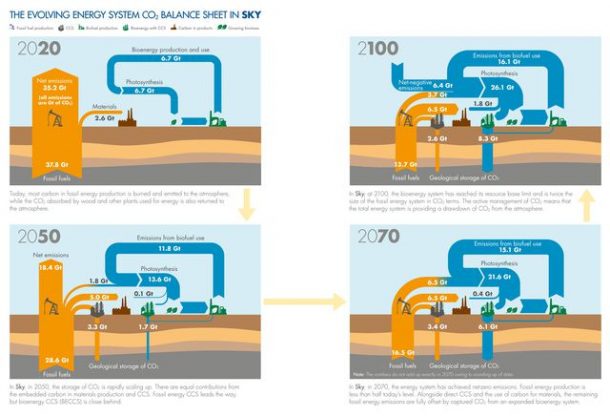The Royal Dutch Shell oil company published a strategy called the ‘Sky scenario’. It is a look at the future of energy and the climate over the coming years. The Sky is a ‘scenario’, not a prediction or a roadmap for Shell. They have illustrated where one of the largest fossil fuel industry is heading in the next few decades. The scenario states that with sufficient support from governments and industry leaders, we can see a major decline in the fossil fuel consumption around 2040. The scenario predicts that oil production is expected to reach its peak in the mid-2020s.
As per scenario, the natural gas production will also start declining by the late 2030s. Coal production is already facing a decline and fossil fuels will produce less than 50% of the world’s energy in 2050. These numbers might look okay, however, the experts suggest that this kind of approach is not fast enough. The main issue relates to earth’s ‘carbon budget’, i.e. the amount of CO2 which we can put into the atmosphere. If the CO2 emissions keep increasing as predicted by Shell’s scenario, we will hit that limit by 2025. Shell’s outline has also given an optimistic picture of a carbon-neutral economy by 2070. However, the less optimistic opposition says that by that time it will be too late by then.

Shell is adjusting its numbers with the shrinking climate budget by adopting a technology called ‘carbon capture and storage’ (CCS). It is very promising in theory but doesn’t exist in practice. CCS is extremely important and is expected to be a very valuable technology. With CCS, carbon dioxide will be taken out of the air and buried deep in the ground. This way the CO2 will not become the cause of any global warming.

Shell imagines a future where CCS tech will be heavily used by 2050. It will produce net zero emissions by 2070 and negative emissions by 2100. CCS is more of an idea than a solution currently. There are very few CCS installations running at the moment but they are very small and operate on emissions from fossil fuel plants instead of absorbing the carbon from the atmosphere. More advanced technologies also exist, however, they have been successful only in the labs.

Not only Shell is relying on CCS to make its numbers work but UN’s Intergovernmental Panel on Climate Change is also relying heavily on a version of CCS which involves biomatter. It is called ‘bioenergy with carbon capture and storage’ or BECCS. Its proposal is also to keep the warming under 2-degree centigrade. In few decades the installation of CCS will be common. The Shell scenario has predicted 10,000 by 2070. This also relies on the assumption that we will find a way to make CCS spread and become profitable. There are still chances that the tech might still be developed too late to make a meaningful impact.


